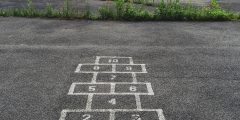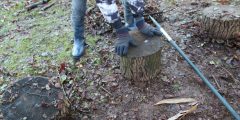Crafting mathematical learning journeys for children: the power of board work
May 2, 2025
Many primary school lessons – mathematics lessons included – include use of a PowerPoint, Google slides (or similar) presentation. Popular schemes of work provide slide decks (e.g. NCETM PD materials, White Rose, and Oak National Academy), and also include all of the resources, worked examples, explanations, and pupil tasks needed for lessons. Teachers supplement the …
Enhancing the writing process with technology: practical insights for teachers
March 27, 2025
Initial reflection on the relationship between technology and the development of writing might have you thinking they are not natural soul mates. However, schools across Transform Trust have been integrating technology into the writing process and this offers a dynamic way to engage students, supporting each stage from idea generation to final publication. Trust Associate …
Higher-order questions or questioning for higher-order thinking?
September 9, 2024
In this post, I contrast higher-order questions with questioning for higher-order thinking and suggest some principles for developing this aspect of practice. Why ask questions? Let’s imagine a visit to a Year 5 class where pupils have been studying Roman Britain for the last few weeks. It’s the penultimate lesson in the unit and time …
Getting them out there: the importance of fieldwork in Geography and getting students in the zone to notice
June 13, 2024
In this post, Alex Booth and Mal Kerr make the case for the importance of fieldwork in geography and offer some guiding principles. “Geography wants to take children outside the school and into the streets and fields; it wants to take the keyboard tappers out of their gloomy offices and into the rain or sunshine.” …
Oracy in the classroom: making space for authentic voices
September 26, 2022
In this post, Rupert Knight reflects on recent visits to classrooms to observe practice in oracy (or the skilled use of spoken language) and considers how we can ensure that learning through talk involves authentic pupil voices. The importance of oracy In a previous blog in this series, I outlined some features of oracy, particularly …
Supporting learners with dyscalculia and maths difficulties in the primary classroom
June 22, 2022
In this blog, Natalie Kerslake from Windmill LEAD Academy in Nottingham explores how she first became interested in supporting children with dyscalculia and maths difficulties, before discussing how they can be supported in the primary classroom. I recently had the pleasure of visiting the University of Nottingham, to deliver sessions to the Primary PGCE and …
The Power of an Immersive Curriculum
April 20, 2022
In this post, Thomas Dransfield, Class Teacher and Key Stage Leader at Bramcote Hills Primary School in Nottingham shares some examples of creating immersive environments across the curriculum. Our SPARK Curriculum In recent years, the curriculum has taken precedence amongst educational stakeholders, and rightly so, for it is the quality of a school’s curriculum which …
Why don’t you build me up, buttercup? A Forest School recovery plan.
January 21, 2022
As schools continue to evaluate the impact of Covid-19 on their learners, former Deputy Headteacher, Rachel Peckover, explains how her three-form entry, suburban junior school in the East Midlands, set up Forest School provision. The school aimed to tackle issues around pupils’ social development as a result of lockdown, as well as the rise in …
Harnessing the power of story to promote mathematical learning
December 16, 2021
In this blog post, which was originally published on the 27th Nov, 2020 on ‘Ponderings on maths education’, Catherine Gripton and Helen J Williams explore how to harness the power of story to support mathematical learning. How might picture and story books enhance the mathematical experience we offer young children? All children are entitled to …
A change of perspective: the explanatory power of varied examples
November 17, 2021
In this post, Rupert Knight considers how drawing on varied examples when explaining new concepts can enhance understanding. It builds on previous blogs in this series, particularly those on a teacher’s core practices and on modelling. Showing the essence of an idea through multiple perspectives ‘Jim Jarvis hopped about on the edge of the road, …










